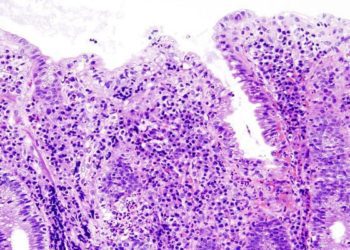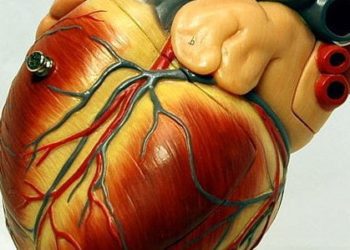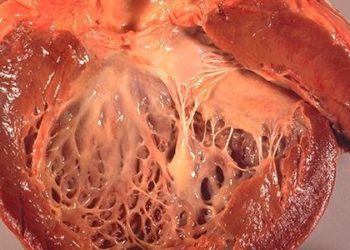Computer-aided detection does not improve neoplasm detection with colonoscopy
1. The GI-Genius neural network system did not improve the rate of detecting advanced colorectal neoplasia by colonoscopy in patients with a first positive fecal immunochemical test (FIT).
2. The unassisted control group had a high adenoma detection rate (ADR) at baseline.
Evidence Rating Level: 1 (Excellent)
Study Rundown: Colorectal cancer (CRC) screening, involving FIT followed by diagnostic-therapeutic colonoscopy as indicated, has significantly improved the detection of at-risk premalignant neoplasms. This has subsequently resulted in reduced CRC mortality. A key determinant of post-colonoscopy CRC occurrence is the detection rate of high-grade lesions during the procedure. Artificial intelligence has shown promise in improving overall ADRs, but it is unclear if such improvements arise from low-grade or high-grade lesion detection. This study was a randomized controlled trial to investigate the impact of Medtronic’s GI-Genius artificial intelligence (AI) on the detection of advanced colorectal neoplasia among Spanish patients who had had a first positive FIT. It was demonstrated that the computer-aided intervention group had similar detection rates of advanced neoplasms (adenomas and serrated polyps) compared to the unassisted control group. The intervention group, however, reported a higher rate of detecting low-grade lesions. The control group had a high ADR at baseline, which could have attenuated the potential impact of the AI for practitioners with lower ADRs. Nevertheless, within the clinical setting of the trial, AI-assisted colonoscopy did not improve the detection of high-grade lesions.
Click here to read the study in AIM
In-Depth [randomized controlled trial]: The current study was a multi-center, parallel, randomized controlled trial to assess the impact of the GI-Genius AI technology on the detection of advanced colorectal neoplasms among Spanish patients within their local CRC screening program. Patients presenting for colonoscopy after their first positive FIT through CRC screening with cecal intubation and adequate colon preparation were eligible for inclusion. Exclusion criteria included a history of CRC, inflammatory bowel disease, severe illness, or familial CRC syndrome. Overall, 3,213 patients were randomly assigned to the intervention group, who underwent colonoscopy with the assistance of the GI-Genius system, and the control group, who underwent the procedure without computer assistance. The primary outcome was the detection rate of advanced colorectal neoplasms, proven histologically as advanced adenoma and/or advanced serrated polyps. It was demonstrated that the two groups had comparable detection rates of advanced colorectal neoplasms, with 34.8% among the intervention group and 34.6% in the control group (Adjusted Risk Ratio [ARR], 1.01; 95% Confidence Interval [CI], 0.92-1.10). Similarly, the mean number of advanced colorectal neoplasias found per colonoscopy was 0.54 in the intervention group and 0.52 in the control group. The AI system also did not improve overall ADR, which was 64.2% for the intervention group compared to 62.0% for the control group (ARR, 1.06; 99.9% CI, 0.91-1.23). The ADR for the unassisted control group was high at 62.0%, which might have attenuated the potential impact of the AI for practitioners with lower baseline ADRs. Within the clinical setting of the study, the GI-Genius system did not improve the colonoscopic detection rate of advanced colorectal neoplasms.
Image: PD
©2023 2 Minute Medicine, Inc. All rights reserved. No works may be reproduced without expressed written consent from 2 Minute Medicine, Inc. Inquire about licensing here. No article should be construed as medical advice and is not intended as such by the authors or by 2 Minute Medicine, Inc.









